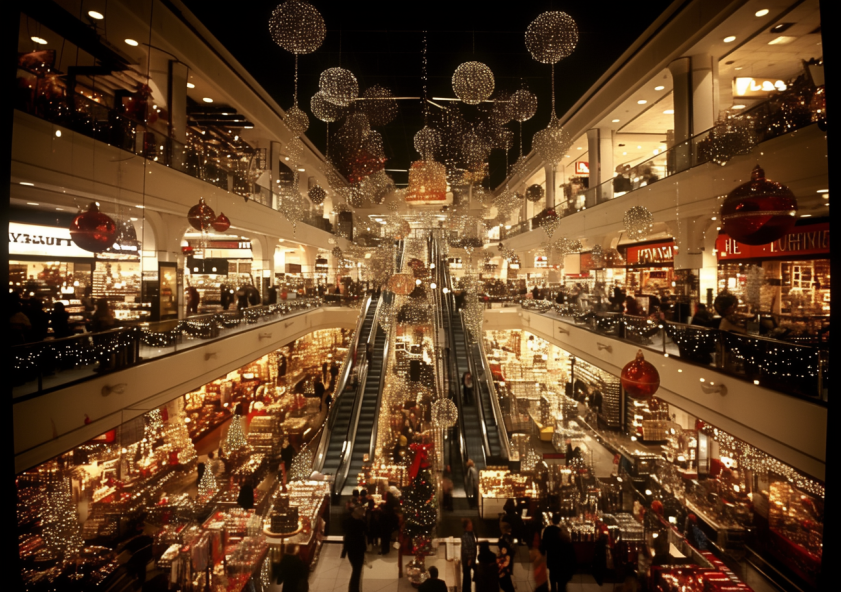
As the last wisps of Thanksgiving dinner dissipate, a different kind of frenzy takes hold in the United States. Black Friday, the day after Turkey Day, marks the unofficial beginning of the holiday shopping season, a period of frantic consumerism that will last until Christmas Eve. On this day, retailers across the country slash prices, offer doorbuster deals, and extend operating hours to accommodate the throngs of bargain hunters who will stop at nothing to snag the perfect gift.
The Origins of Black Friday

The term "Black Friday" was originally coined in Philadelphia in the 1950s to describe the chaos that erupted when hordes of suburban shoppers flooded into the city to kick off their holiday shopping. Over time, the phrase gained widespread use, and by the 1980s, it had become a national phenomenon. Today, Black Friday is a major event, with some retailers opening their doors as early as 4 pm on Thanksgiving Day and staying open for 24 hours straight.
The Psychology of Black Friday Shopping

So, what drives people to brave the crowds, long lines, and occasionally, even violence, to participate in Black Friday? According to psychologists, the answer lies in the thrill of the hunt. For many, holiday shopping is a form of entertainment, a way to get into the festive spirit and score some great deals in the process. The sense of urgency created by limited-time offers and scarce inventory taps into our primal instincts, making us feel like we're competing in a high-stakes game.
Moreover, Black Friday shopping has become a social event, with friends and family members joining forces to tackle the malls and big-box stores. The camaraderie and shared experience of fighting for the same discounted TV or toy create a sense of community and belonging.
The Economic Impact of Black Friday

Black Friday is a crucial period for retailers, who often rely on holiday sales to make up for sluggish performance during the rest of the year. In 2020, Americans spent a record $72.9 billion on Black Friday, with the average shopper shelling out $362.15. These numbers are staggering, and they underscore the importance of this shopping extravaganza to the overall health of the US economy.
In recent years, the rise of e-commerce has changed the way people shop on Black Friday. Online sales have grown significantly, with many retailers offering the same deals and discounts on their websites as they do in-store. This shift has led to a new phenomenon: "cyber doorbusters," which are exclusive online deals available only for a limited time.
The Dark Side of Black Friday
While Black Friday can be a fun and exciting experience for many, it also has a darker side. The frenzy and chaos that accompany the event have led to reports of violence, stampedes, and even fatalities. In 2016, a man was shot in a parking lot argument over a parking space at a Walmart in Tennessee. Such incidents have prompted some to question the true meaning of the holiday season and the values we hold dear.
Furthermore, the emphasis on material gifts and consumerism has sparked concerns about the environmental impact of Black Friday. The production and disposal of cheap, disposable products contribute to pollution, waste, and resource depletion, highlighting the need for more sustainable practices and conscious consumption.
The Evolution of Black Friday
In response to growing criticism and changing consumer habits, retailers are adapting their strategies to make Black Friday more appealing and sustainable. Many are now offering price matching, flexible return policies, and more personalized shopping experiences to lure customers away from their competitors.
Some retailers, like REI, have taken a bold step in a different direction. In 2015, the outdoor apparel brand announced that it would close its stores on Black Friday, encouraging its employees and customers to instead "Opt Outside" and enjoy nature. This move sparked a national conversation about the value of experiences over material goods and the importance of taking a break from the chaos of consumerism.
Conclusion
Black Friday is a complex and multifaceted phenomenon that reflects both the best and worst of human nature. While it can be a fun and exciting experience for many, it also raises important questions about our values, priorities, and relationship with consumerism.
As we move forward, it's crucial that we find a balance between enjoying the thrill of the holiday shopping season and promoting more sustainable, conscious consumption practices. By doing so, we can transform Black Friday into an event that truly celebrates the spirit of giving, family, and community that defines the holiday season.